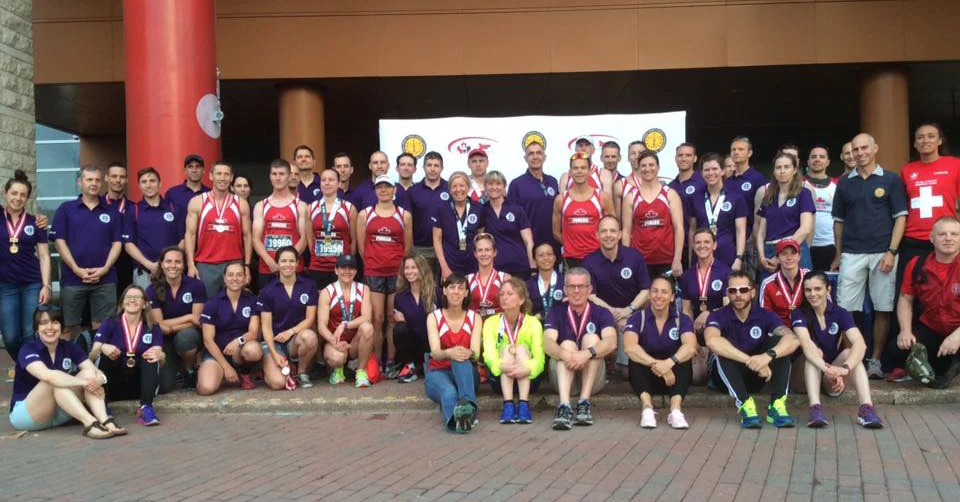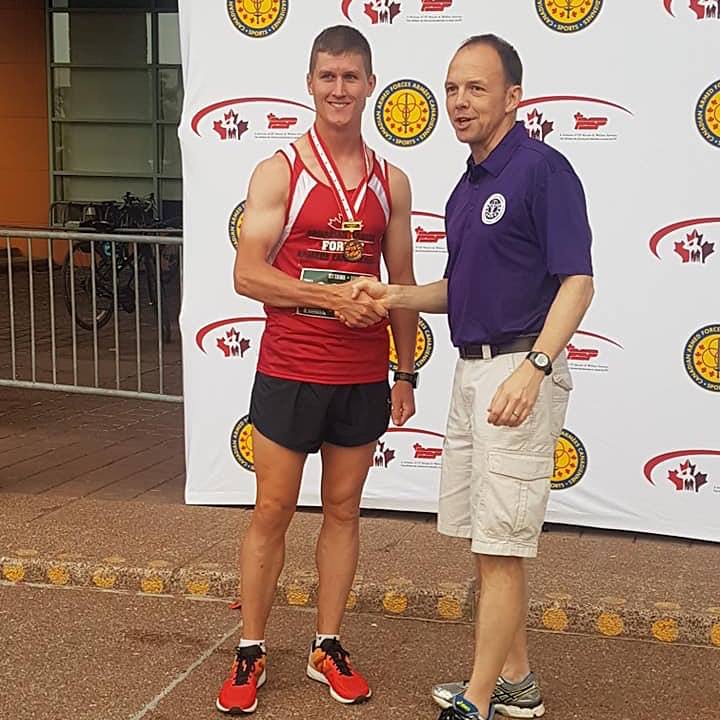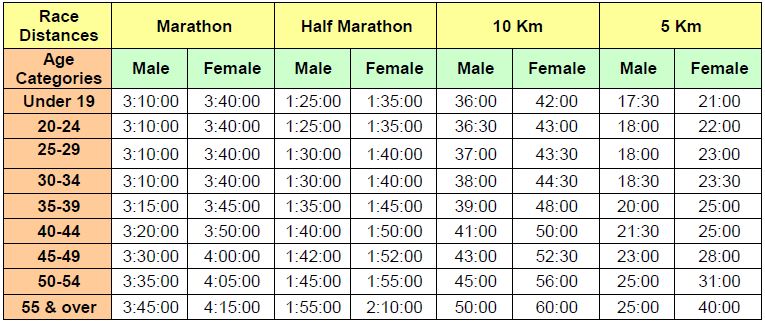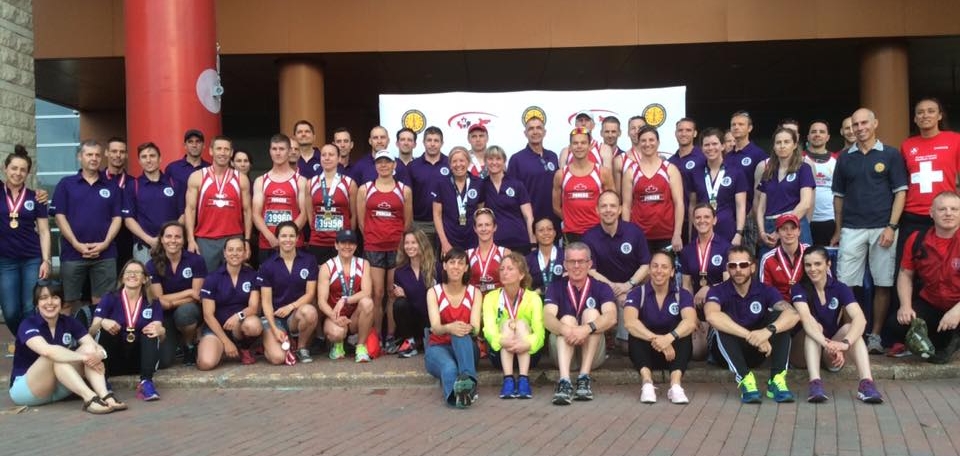By: Matt Setlack
The purpose of this post is to share my experience at the Ottawa 10k and, for those who may be interested, to give a brief explanation of what Canadian Armed Forces (CAF) Running Nationals are. The Ottawa 10k is considered the Canadian 10k National Championships as well one event of the Canadian Armed Forces National Running Championships (the other events are 5k, 21.1k and 42.2k).
Just before the finish line. Photo by Michael-Lucien Bergeron
Pre-Race
On Fri 25 May 2018, I woke up at 4 am, drove 4 hours to the Edmonton Airport, flew 2 hours to Winnipeg, flew 2.5 hours to Ottawa and then took a short taxi ride to downtown Ottawa arriving around 18:30 hrs local. My roommate for the weekend, Conrad who is from Yellowknife, Northwest Territories actually took less time to travel to Ottawa than me!
Upon checking into our student dorm accommodations at 90 University Private (Stanton building), my younger brother, Anthony picked me up and gave me a personal tour of the RCMP Musical Ride Stables located in Rockcliffe. It was interesting and I greatly appreciated it.
The Race
The atmosphere at the start line was electric. The electronic dance music was extremely good and they had the best energy/ambiance that I have felt at a start line anywhere before. The elite women started at 18:26:20 on Sat 26 May 2018 and the elite men/masses started at 18:30:00.
As a male athlete, I like the women/men staggered start; to me, it equalizes the field and gives you a good idea of how you really compare to your female counterparts. It also makes it a fair race as the women are not able to able to draft/pace off the men for the entire race.
The 2018 Ottawa 10k race video can be found below:
As usual, the start was chaotic and felt like thousands of buffalo trampling the ground. I started very fast (I saw 2:50/km on my gps watch) but then got into a good groove after 500m. I deliberately kept a conservative pace of around 3:15/km as I was not sure what I was capable of this early in the season (and I had run around 180km per week for the past three weeks). I kept this pace and slowly started to pass people for the first 2-3km. I was extremely surprised that nobody in front of me was taking the tangents (i.e. running on the inside of a turn / running the invisible line that the race distance was measured on).
Just before the finish line. Photo by Michael-Lucien Bergeron.
I went through the first 5k in 16:12 and the last 5k in 16:41. In the Ottawa 10k, it is very unusual to run the second half faster than the first half due to, in my opinion, the winding nature of the second half of the course. The 1st place runner, Andamlak Berta ran the second half 22 seconds slower than the first half. The first Canadian, Evan Esselink, ran the second half 33 seconds slower than the first half.
The 2018 Ottawa 10k was the most comfortable 10k I have ever done. I was really conservative with the pace, thinking I was going to blow up (I had done very few quality sessions over the past few weeks) but that never happened. It almost felt like I was doing a tempo session. I really enjoyed the experience. Conditions were ideal and the competition was very strong. I ended up running 32:52 placing 29th / 20th Canadian / 1st in CAF. Overall, I am happy with the Ottawa 10k. I do consider it a rust-buster and I am looking forward to the upcoming race season.
I would like to thank all of the people who made competing at CAF Run Nats possible including, but not limited to, Ms. Kori Klein, and all of the 4 Wing and Ottawa PSP personnel.
A few thoughts on the race
- If you want to run faster, I believe that the majority of runners could benefit from running MORE. In my personal experience, leading into the Ottawa 10k this year, I barely did any quality sessions (see my STRAVA training log here) but instead focused on building a good foundation for the upcoming summer racing season (as I was away on Phase 1 PFT during the winter months and did not run as much as I should have during this time). I averaged about 180km of running in the three weeks leading into the Ottawa 10k. I also did not taper for this race. Nonetheless, I still ran pretty much the exact same time (and placed in the exact same place), with much less effort, as last year's Ottawa 10k. Strange.
- What works for one runner may not work for another runner. I personally choose to run commute to and from work everyday (in addition to running at lunch and on the weekends). Each run commute is 5 miles and accounts for about 50 miles of running per week. I would HIGHLY recommend run commuting especially for busy people who have a full time career in addition to competing in running. Do what works for you, what fits your schedule and what allows you to train consistently.
- I think specificity of training is important. If you want to become a better runner, you need to RUN. Simple but some people forget this simple fact. If you want to do something really well, for the most part, it really helps if you can focus all of your time and energy on that one activity. This point was really driven home to me over the past month when I exclusively focused on running (mainly due to the AETE Step Challenge).
- If your race does not go well, the first thing you should be asking yourself is, “how was my training over the past weeks/months/years leading into this race?” I feel that people (including myself) have a tendency to point the finger at a whole bunch of minuscule things that affected their race but forget about the big picture. They over-analyze things like, I only slept 6 hours the night before, it was a little humid, the temperature was 5 degrees warmer than I’m used to, I wasn’t wearing my favourite racing singlet, etc. Paying attention to the details IS important but I believe that the fitter you get, the better your body will be able to deal with these little changes in the days leading up to the race. I learned this lesson back in 2015 at the CISM Military World Games in South Korea. Everything was perfect leading up to the race; the Koreans treated us incredibly well...but my race was not as fast as I would have liked. I spent many hours writing down all the little details until coming to the conclusion that my inconsistent training program leading into the race was the main reason I did not perform well. Don't lose the forest for the trees.
Cold Lake Runners from L to R: Matt Setlack, Marie-Michele Siu, Alana Cadieux and George Beatteay
A Note on Course Measurement
I have studied and understand very well how running race courses are measured and certified. As a result, I have a great appreciation of an accurately measured and certified distance race course. If you want to improve your race times without putting in any extra effort, I highly recommend that you RUN THE TANGENTS (and review the Course Measurement Certification procedures). Not running the tangents is kind of like running a 10,000m track race in lane 2!
Athletics Canada Course Measurement page can be found here:
http://athletics.ca/ac-road/course-measurement/#sthash.jrfv1OU1.dpbs
By clicking "Manuals & Forms" and then "Download Booklet", you will get to the International Association of Athletics Federations (IAAF), the Measurement of Road Race Courses, Second Edition, 2004 Updated 2008. There is a lot of good info at the link above including a list of certified courses and even the Athletics Canada Road Race Measurement Certificate for the Ottawa 10k.
This is a very interesting GPS accuracy article that I highly recommend reading:
Runner threatens law suit over course measurement disagreement (True Story)
CAF Running Nationals
If you are a member of the Canadian Armed Forces (regular force or reserve force) and you are interested in competing in CAF Running Nationals, then you will first need to run a qualifying race under the qualifying time. This qualifying race must typically take place no more than 14 months before race day. The qualifying race must be the same distance as the race you want to compete in at CAF Running Nationals (i.e. if you run a 10k qualifying race, then your time in that race will qualify you for the 10k at CAF Running Nationals).
Qualifying Times
I believe it would be a good idea for the qualifying times to be reviewed and possibly revised so that they are determined using an age grade calculator. Age grading is a way of putting all runners on a level playing field, regardless of age or gender. As you can see, the current qualifying times are heavily biased towards older runners. For example, a 55 year old female needs to run the 5k in 40:00 (43.2% age grade) while a 19 year old male needs to run the 5k over twice as fast in 17:30 (74.7%). This potentially means that some younger faster runners may not be getting the opportunity to compete at CAF Nationals.
I took each of the above qualifying times and created a graph to clearly show the decrease in age grade percent with increasing age. If interested, the numbers and graph can be found in my Excel spreadsheet. The data is from the 2017 CAF Run Nats.
In the Dec/Jan timeframe, contact your local Base PSP and let them know that you would like to apply to compete at CAF Run Nats. The Base PSP will compile a list of all the qualifying times and choose the fastest 20 runners within each region in Canada. I believe there are 6 regions in Canada so about 120 athletes compete at CAF Run Nats. Once the regional athletes are chosen, you will be notified in the Feb/Mar timeframe.
You will be on TD for CAF Run Nats and everything is paid for including your airline flights, accommodations, food and race entry. It is an extremely good opportunity and I highly recommend competing in CAF Run Nats.
Useful Documents for CAF Running Nationals
2018 CAF Regional & National Sports Championships Operations Manual - Section 14 - Running
Manuel de reference des championnats des FAC 2018 - Section 14 - Course
Final Coordinating Instructions - CAF National Running Championship 25-27 May 2018
Instructions de coordination finales Championnat national de course des FAC du 25 au 27 mai 2018
Please feel free to contact me directly via the "Contact" link above or on the DIN if you have any questions or would like more info.












